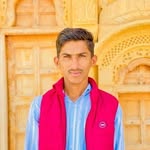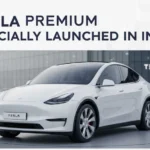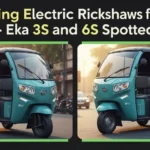If you’re someone who’s been keeping an eye out for affordable, fuel-saving hybrid cars that don’t compromise on reliability or comfort, you’re not alone. With rising fuel costs, stricter pollution norms, and city congestion, Indian car buyers are hungry for wallet-friendly, eco-conscious options. So, when the Toyota Aqua Hybrid—famed for its efficiency—was spotted on Indian roads recently, it sent a ripple of excitement through the automotive community.
What does this sighting mean for you as a future car buyer? In this article, I’ll break down what’s really going on with the Aqua Hybrid’s India tests, why Toyota may be changing its hybrid strategy, and what you should expect if you’re hoping to see this tech in your garage soon.
What We Know About the Toyota Aqua Hybrid’s Testing in India
Over the past few weeks, several Toyota Aqua Hybrid hatchbacks have been seen in New Delhi and Gurgaon, sporting temporary KA registration plates and only light camouflage. The Toyota badges were sometimes covered, but the overall silhouette was unmistakable. These aren’t just routine imports or private imports—Toyota has a history of quietly testing international hybrid models in India to gauge how they handle local road and climate conditions.
Key Details from the Recent Sightings
- Minimal Camouflage: The cars didn’t look like prototypes. Instead, they used standard production panels and light taping. This suggests Toyota is more interested in testing hybrid components than hiding the car’s design.
- Temporary Registration: The test mules carried temporary plates, commonly used in early feasibility studies before a launch is finalized.
- Hybrid Badging: The “Hybrid” logos were visible on some cars, confirming these are not just regular petrol hatchbacks.
Aqua Hybrid Quick Specs
- Platform: TNGA-B (Toyota’s global modular architecture for small cars)
- Engine: 1.5-liter, 3-cylinder petrol engine (around 89 BHP and 120 Nm torque)
- Hybrid System: Front electric motor (up to 79 BHP, 141 Nm), with AWD versions adding a small rear motor
- Battery: Bipolar Nickel-Metal Hydride (NiMH), compact and energy-dense
- Transmission: e-CVT (electronically controlled continuously variable transmission)
- Claimed Mileage: Up to 35.8 km/l in Japanese testing
- Size: About 4 meters long, making it a true compact hatchback
Why Are These Tests Happening?
Toyota isn’t new to testing hybrids like the Yaris, RAV4, or even older Prius models on Indian soil. These tests help them:
- Assess how hybrid batteries and engines handle heat, dust, and traffic jams.
- Gather real-world data for localizing hybrid tech (especially battery supply and assembly).
- Decide whether to launch the complete model or use the hybrid system in other vehicles.
For buyers, these tests mean Toyota is serious about localizing advanced hybrid tech—potentially making it more affordable and reliable in Indian conditions.
Will Toyota Aqua Hybrid Actually Launch in India? Key Signals and Realistic Timelines
Many are wondering if you’ll actually be able to buy the Aqua Hybrid in India by 2026. Here’s what the evidence says.
What the Testing Really Means
Industry sources and past Toyota moves make it clear: just because a car is seen testing doesn’t mean a showroom launch is guaranteed. The Aqua Hybrid is a compact hatchback—a segment that’s shrinking as more Indians choose SUVs and crossovers for ground clearance and space.
Toyota’s Hybrid Strategy: More Than Just Hatchbacks
Toyota’s current India lineup, including the Urban Cruiser Hyryder and Maruti Suzuki Grand Vitara (co-developed with Suzuki), already uses similar hybrid systems. These cars are larger, more practical, and fit the SUV trend.
Toyota’s approach in India centers on:
- Testing international hybrid tech for local adaptation.
- Using proven hybrid engines and battery tech in more popular SUV models.
- Avoiding direct launches of Japan-specific hatchbacks that might struggle in India’s value-focused market.
Challenges Facing a Direct Aqua Launch
- Segment Fit: Compact hatchbacks face declining demand in India, especially in the Rs 10 lakh+ range.
- Localization Costs: Developing and sourcing hybrid batteries locally is expensive, and Toyota would want scale.
- Market Priorities: Toyota will likely prioritize mass-market SUVs and MPVs, not hatchbacks, for hybrid rollouts.
Other Toyota Hybrids Likely for 2025-26
If you’re looking to buy a hybrid soon, keep an eye on these upcoming Toyota launches:
- Toyota Fortuner Hybrid: Full-size SUV with a strong hybrid option.
- Land Cruiser Prado Hybrid: Luxury SUV with hybrid power.
- Urban Cruiser Hyryder 7-seater and updates to existing Hyryder/Grand Vitara models with advanced hybrid tech.
Some reports also mention a next-generation Prius and Corolla Cross Hybrid for India in the next two years, along with Maruti Suzuki’s own hybrid MPVs.
Honest Outlook for Buyers
Don’t expect the Toyota Aqua Hybrid hatchback in Indian showrooms before 2026, if at all. The tech you see tested in Aqua is more likely headed for future Toyota/Maruti SUVs and MPVs. The good news? These cars will use the same proven hybrid battery, engine, and electric drive systems, so you’ll get Aqua-like efficiency and reliability, just in a more India-friendly package.
Conclusion
The Toyota Aqua Hybrid’s test runs in India are big news for anyone hoping to see world-class hybrid tech become more affordable and common here. While it’s unlikely you’ll see the Aqua hatchback itself in showrooms soon, its advanced hybrid system is paving the way for a new wave of efficient, reliable, and greener SUVs and MPVs from Toyota and Maruti Suzuki.
Key Takeaways:
- Toyota Aqua Hybrid tests show serious intent to localize advanced hybrid tech for India.
- Direct Aqua hatchback launch is unlikely; focus will be on SUVs and MPVs.
- Expect to see Toyota’s hybrid engines and batteries in popular models from 2025–2026.
- The shift spells good news for eco-conscious buyers who want lower fuel bills and reduced emissions.
Keep an eye on upcoming Toyota and Maruti hybrid launches if you’re dreaming of that perfect blend of efficiency, comfort, and reliability. The future of hybrid cars in India is brighter than ever, and you’ll soon have more choices that fit your lifestyle and budget.
Disclaimer: The information and pictures provided on this page are not guaranteed to be completely accurate. Please seek expert advice before making any decision.







